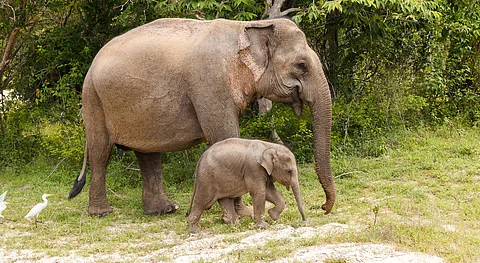

Loss of experienced elephant individuals has disastrous consequences for elephant societies, with knowledge transfer between generations coming to a stop, a new study has found.
Elephants are among the most intelligent and socially complex animals on the planet. They rely on their elders to navigate their environments, find resources, and avoid predators.
Older, knowledgeable individuals like herd matriarchs help improve calf survival rates and enhance group decision-making.
When such individuals are removed through poaching, translocation, or habitat loss, it can have a ripple effect and impact survival, reproduction, and even behaviour.
The study, by researchers from the University of Portsmouth in the UK, looked at 95 peer-reviewed papers documenting the impact of social disruption on elephant populations, spanning African savannah, African forest, and Asian elephants.
It showed how human-caused disturbances — including poaching and culling — profoundly affect elephant social networks.
The researchers called for a fundamental change in elephant conservation efforts by prioritising the preservation of social cohesion and recognising the cultural dimension of elephant conservation.
They urged that experienced individuals like matriarchs should be safeguarded. The social impacts of trans-locating elephants on both source and destination populations should be studied.
They also urged expanding research on forest and Asian elephants, which face significant knowledge gaps in conservation science.
“As elephants share much of their range with human populations, their survival is deeply intertwined with human actions. The study stresses that preserving the intricate social fabric of elephant societies is critical not only for their survival but also for ecological balance and human well-being,” a statement by the university noted.
Knowledge transmission, culture and the consequences of social disruption in wild elephants has been published in The Royal Society’s Philosophical Transactions B. The authors are Lucy Bates, Victoria Louise Fishlock, Joshua Plotnik, Shermin de Silva and Graeme Shannon.